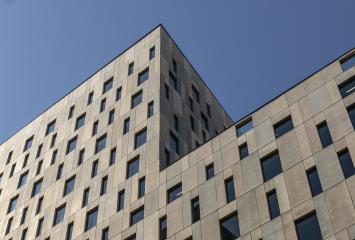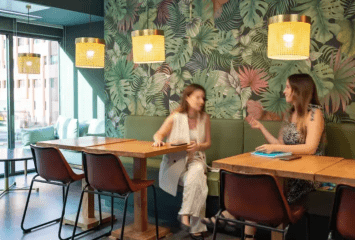Invisible architecture, a new trend in sustainable buildings
The construction of buildings has undergone several stages along history. From the Prehistory primitive structures to the 20th century skyscrapers, there has been several ways to project, design and build.
When climatic change has turned into a reality and it has arisen the awareness that we need to care for the planet, architects all over the world have leapt into the creation of sustainable, environmentally friendly and energy-saving buildings. In its outdoor design, these sustainable buildings look for a complete integration with the landscape, reducing visual pollution to the minimum. However, to maximize these buildings’ functionality becomes a priority, creating workspaces that stir the employee’s creativity and production through an inspiring design. This is what it is known as invisible architecture.
Technological corporations or new generation companies demand today to settle in sustainable buildings of invisible architecture. Therefore, new construction office buildings tend to go for structural glass walls ─that contribute to make the most of natural light hours─, and use a biophilic design, incorporating plants and elements inspired by nature into the workspace to create stimulating and stress-free work environments. It is a kind of architecture that fosters the employees’ wellness, what in the end will translate into a raise of the company’s productivity. The offices inside an invisible architecture sustainable building are, in fact, happy offices.
In Barcelona, 22@ District is the innovation hub par excellence. Many technological corporations that believe in this type of low environmental impact sustainable offices have settle their headquarters there. Colonial, real estate leader in the commercialisation of green offices, it is finishing in this district the office building Ciutat de Granada, next to Plaza de les Glòries and Avenida Diagonal. Ciutat de Granada will have 17 open floors with a total surface of 24.500 sq m. The first to settle into this building will be the Finnish multinational company King, devoted to online videogames production, and the Norwegian group Schibsted, owner of Infojobs. Utopicus, a coworking company referent in Spain, will also open a collaborative workspace in this Colonial’s office building.
Thus, Ciutat de Granada will become one of the referent buildings in 22@ of invisible architecture.

